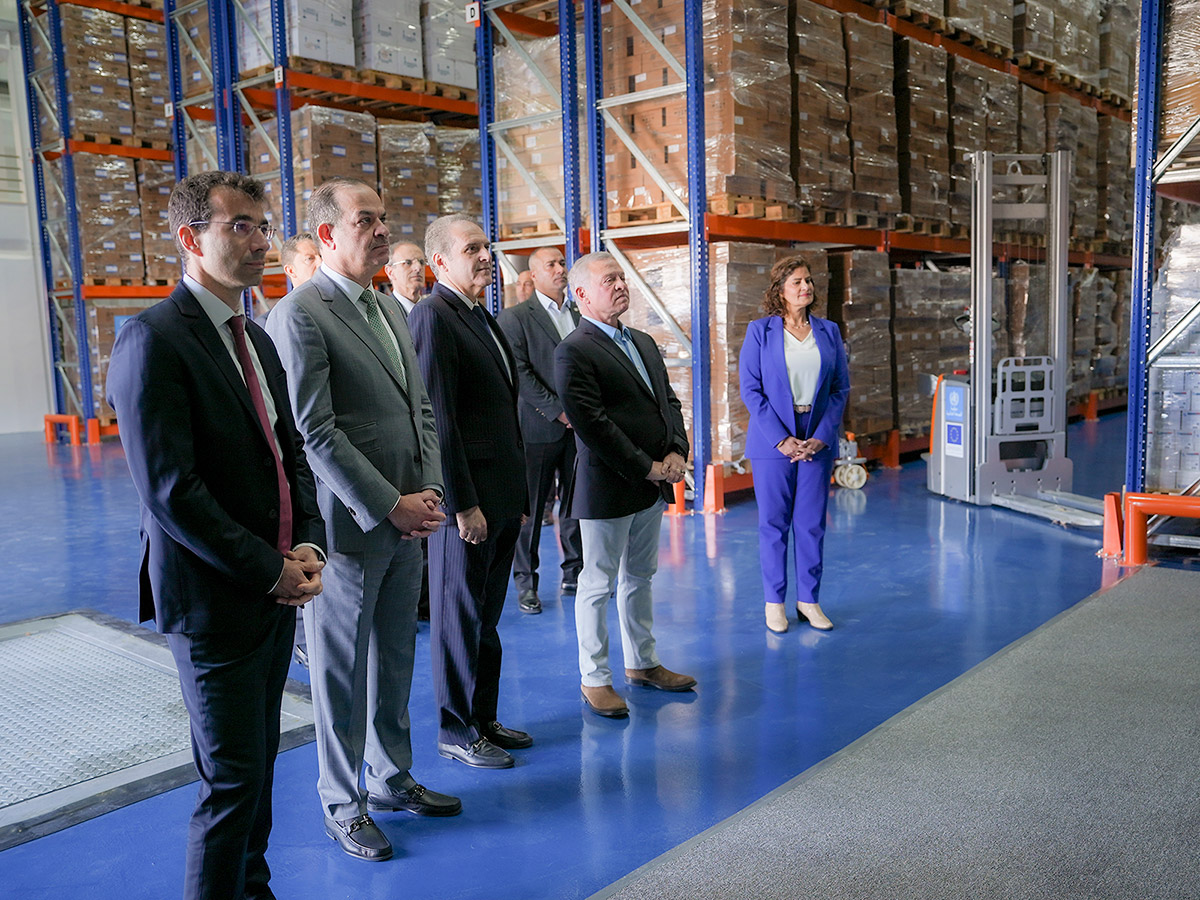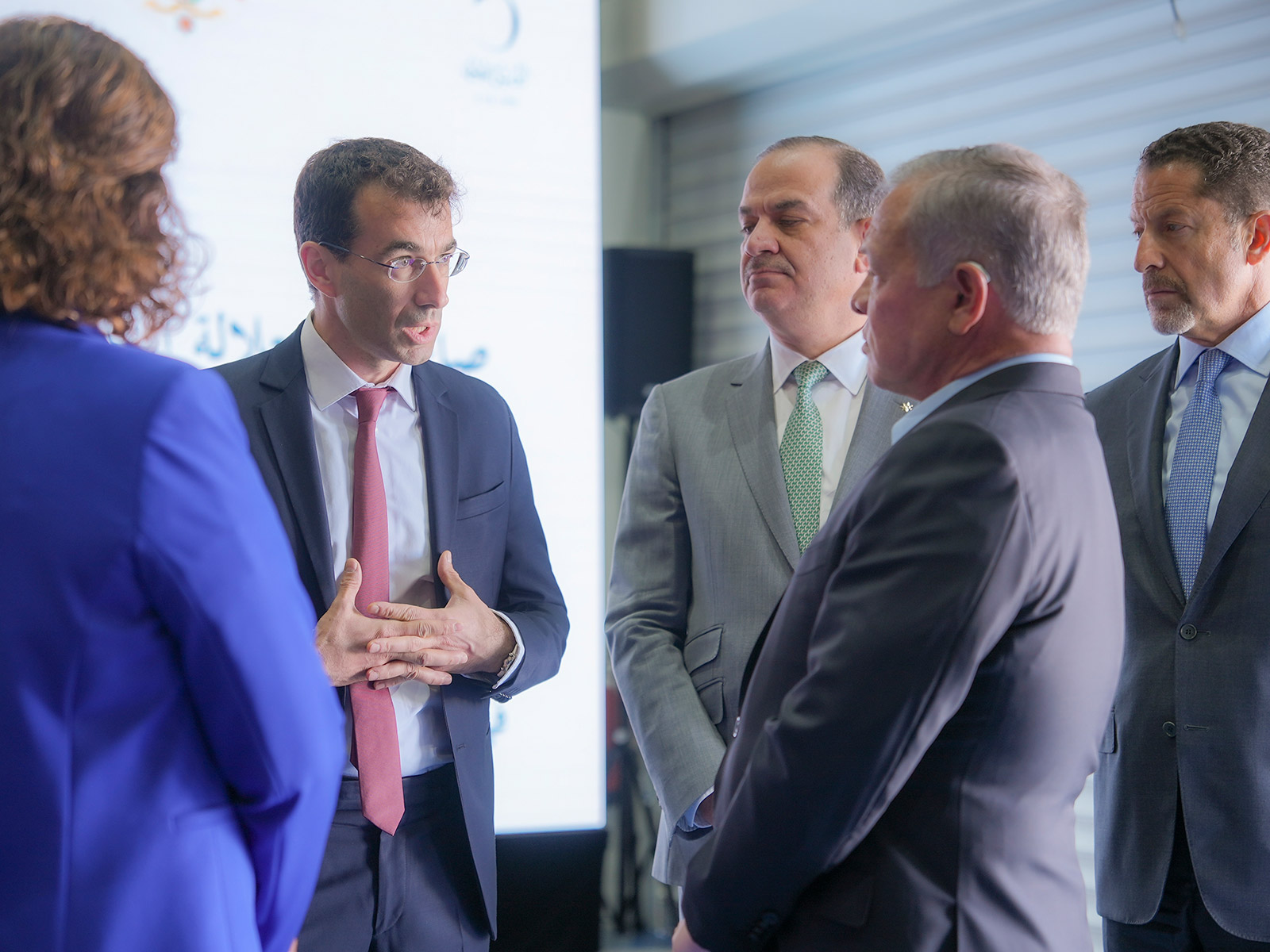The inauguration of the warehouse, the first of its kind in the public sector, is an important milestone on the road to achieving pharmaceutical security. Applying WHO good storage and distribution practices, it will facilitate the strengthening and development of medical supply chains, characterized by precision and speed, and advance universal health coverage.
Located in the Yajouz area of Zarqa Governorate, the warehouse cost 1.8 million Jordanian dinars, covers 4800 square metres and has a storage capacity of 2150 cubic metres which can be increased by 20% for emergency needs. Equipped with advanced technology and a fleet of 24 refrigerated vans to distribute medicines and medical supplies, it will serve government warehouses and storage facilities, hospitals, health directorates and primary health care centres.
A central component of Jordan’s plans – under the umbrella of the Economic Modernization Vision – to improve and develop the management of medical supply chains, the warehouse will help advance WHO Regional Director for the Eastern Mediterranean Dr Hanan Balkhy’s flagship initiative to expand equitable access to medical products.

“We were honored by the visit from His Majesty King Abdullah II to inaugurate the largest medicine warehouse in the public sector. This warehouse aligns with the Economic Modernization Vision, the universal health coverage plan and the Ministry of Health's strategy to ensure a secure and effective medicine supply with sustainable supply chains… and is in line with the flagship initiative of WHO Regional Director for the Eastern Mediterranean Dr Hanan Balkhy to expand equitable access to medical products,” said His Excellency the Minister of Health Professor Feras Hawari.
WHO Regional Director Dr Hanan Balkhy also expressed her sincere appreciation to His Majesty King Abdullah II for his continued support and leadership in strengthening the health sector in Jordan. “Under His Majesty’s patronage, the first state-of-the-art central warehouse for medicines and medical supplies was inaugurated in Jordan, with support from WHO and generous funding from the European Union,” said Dr Balkhy.
“Today marks a pivotal moment in our journey towards universal health coverage. With the inauguration of this medical warehouse, which is a part of a project funded by the EU with €43 million, we take a significant step towards ensuring that health care is not a privilege but a right for everyone. The EU is proud to support this project, which symbolizes our dedication to promoting the health and well-being of Jordanians and Syrian refugees. Together, we are investing in a healthier future for all," said the EU Ambassador to Jordan Pierre-Christophe Chatzisava.
WHO Representative to Jordan Dr Jamela Al-Raiby underlined the importance of the new facility in supporting Jordan’s health system, saying: “The opening of this warehouse, which is the first of 14 facilities that will be established and rehabilitated across Jordan with support from WHO and generous funding from the EU, comes as part of a pioneering initiative within the 3 main flagship initiatives of the WHO Regional Director. It aims to enhance equitable access to essential medical products by improving procurement and supply systems, bolstering local production capacity and strengthening regulatory systems across the Eastern Mediterranean Region.”

“With all of these facilities operational by March 2025, including an advanced regional vaccination centre in Irbid, this national network will form the backbone of a comprehensive health system that adheres to the highest international standards,” added Dr Al-Raiby.
“The project reflects the importance of strong partnerships and concerted efforts to meet populations’ needs and ensure access to essential medicines. The new warehouse and supply chain improvement plan will play a critical role in enhancing health outcomes and protecting health and well-being for all.”
The Ministry of Health-led project reflects Jordan’s commitment to protecting the health of everyone, everywhere, especially the most vulnerable groups. It will enable essential and necessary medicines to reach those in need while ensuring their quality, effectiveness and safety, protecting communities and enhancing the national health sector’s ability to withstand future health crises.


